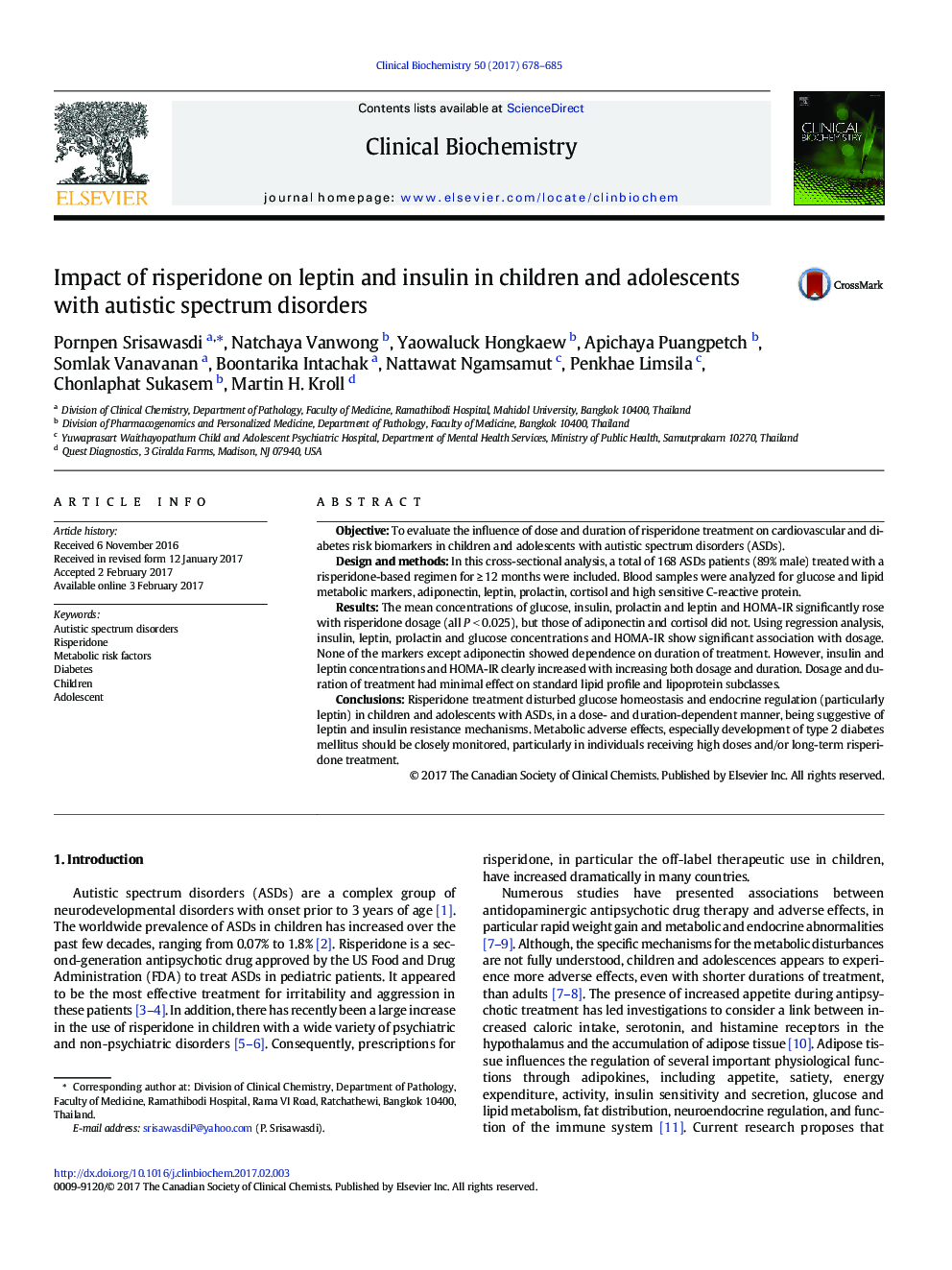| Article ID | Journal | Published Year | Pages | File Type |
|---|---|---|---|---|
| 5509990 | Clinical Biochemistry | 2017 | 8 Pages |
â¢Risperidone treatment disturbed glucose homeostasis and endocrine regulation.â¢Risperidone may directly induce insulin and leptin resistance.â¢These effects are related to dose and duration of treatment.â¢Enhancement of leptin and insulin actions could reduce the risk of metabolic complications.
ObjectiveTo evaluate the influence of dose and duration of risperidone treatment on cardiovascular and diabetes risk biomarkers in children and adolescents with autistic spectrum disorders (ASDs).Design and methodsIn this cross-sectional analysis, a total of 168 ASDs patients (89% male) treated with a risperidone-based regimen for â¥Â 12 months were included. Blood samples were analyzed for glucose and lipid metabolic markers, adiponectin, leptin, prolactin, cortisol and high sensitive C-reactive protein.ResultsThe mean concentrations of glucose, insulin, prolactin and leptin and HOMA-IR significantly rose with risperidone dosage (all P < 0.025), but those of adiponectin and cortisol did not. Using regression analysis, insulin, leptin, prolactin and glucose concentrations and HOMA-IR show significant association with dosage. None of the markers except adiponectin showed dependence on duration of treatment. However, insulin and leptin concentrations and HOMA-IR clearly increased with increasing both dosage and duration. Dosage and duration of treatment had minimal effect on standard lipid profile and lipoprotein subclasses.ConclusionsRisperidone treatment disturbed glucose homeostasis and endocrine regulation (particularly leptin) in children and adolescents with ASDs, in a dose- and duration-dependent manner, being suggestive of leptin and insulin resistance mechanisms. Metabolic adverse effects, especially development of type 2 diabetes mellitus should be closely monitored, particularly in individuals receiving high doses and/or long-term risperidone treatment.
